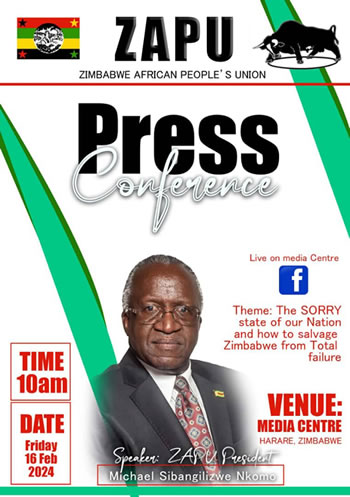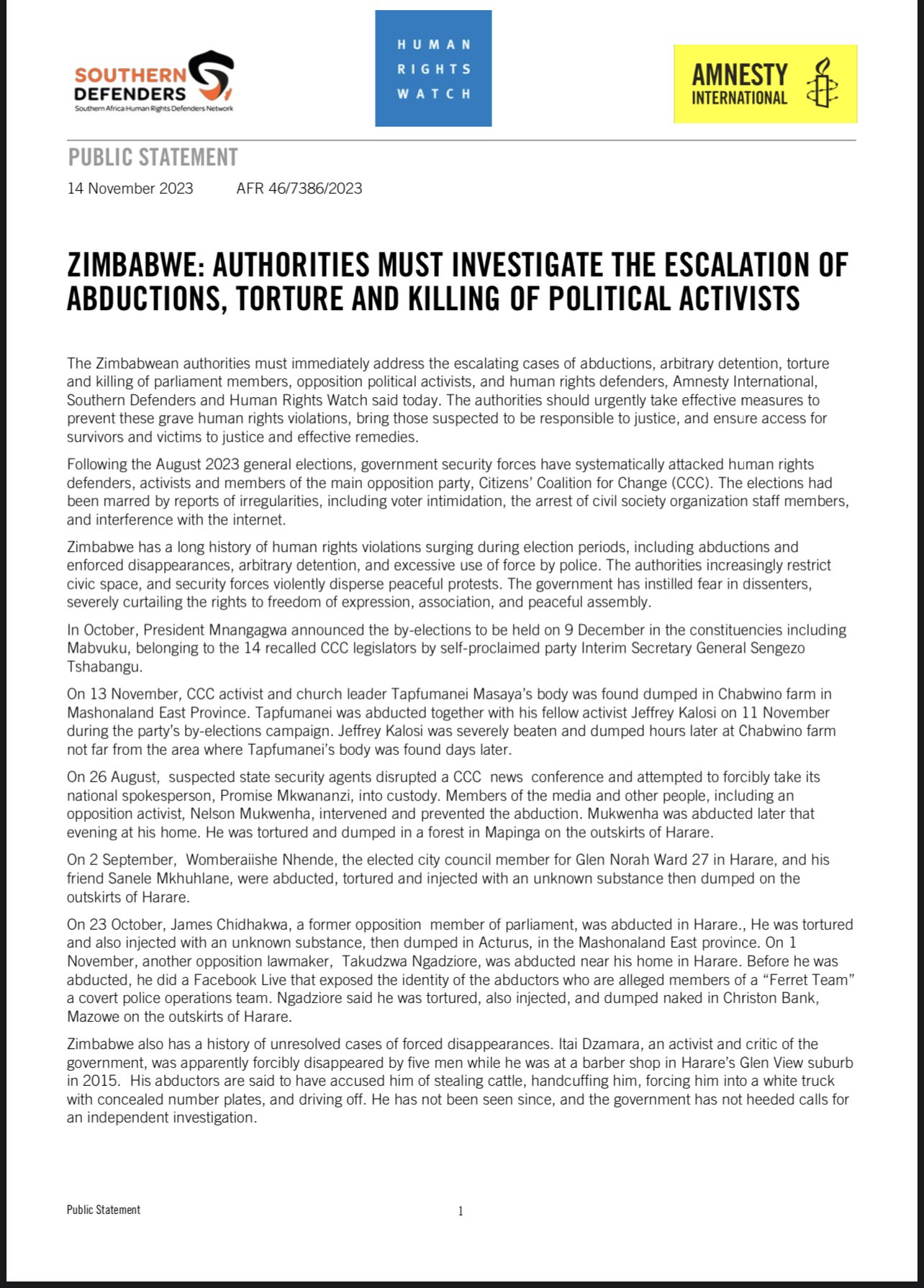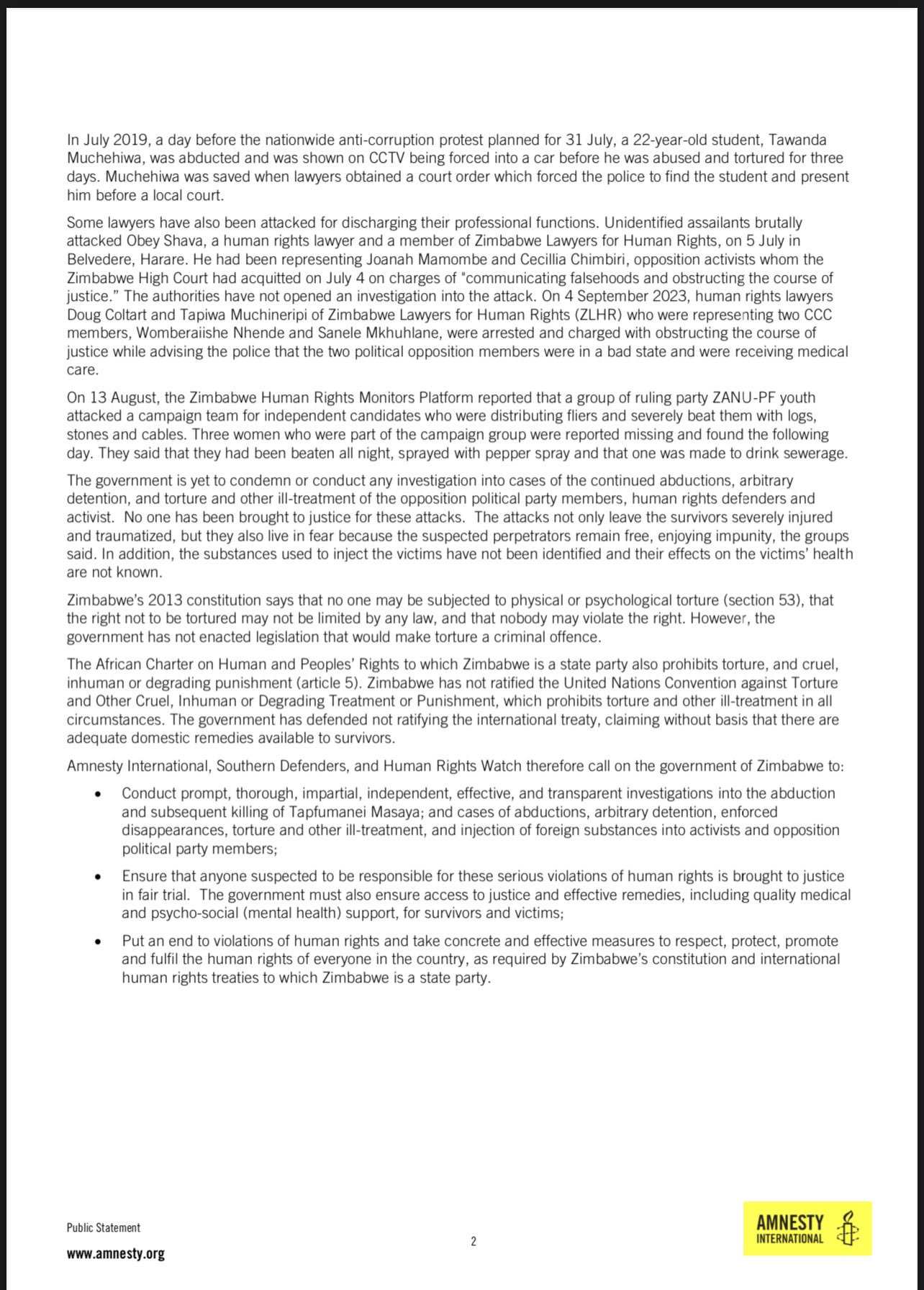- Details
- Written by: Richard Gandari and Duke Maplanka
- Category: Zimbabwe
- Hits: 2278
Press Conference 16th Feb 2024
Today 10am Harare {8:00 am GMT} LIVE LINK - Click the image of the flyer below. After the LIVE Press Conference is over, this Link will still take you to the video of this confernece on the 16th February 2024 by The Rt Honourable President MS Nkomo For those withour Facebook - see the video at this LINK {Click Link} Follow the "Read More" for a Full Transcript of the day's Press Conference:
From right to left in order on the live link/video The ZAPU vice President Derrick Katsenga , ZAPU President Sibangilizwe Micheal Nkomo, The ZAPU National chairperson John Zolani Dlamini ,The Party National Spokesperson Richard Gandari. Vidoe Here: https://www.facebook.com/MediaCentreZw/videos/1071597544099000 Follow the "Read More" for a Full Transcript of the day's Press Conference:
- Details
- Written by: Duke Maplanka
- Category: Zimbabwe
- Hits: 1980
Let us not forget the genocide of Gukurahundi. The recent "enquiry" smacks of an air-brush attempt to alter history
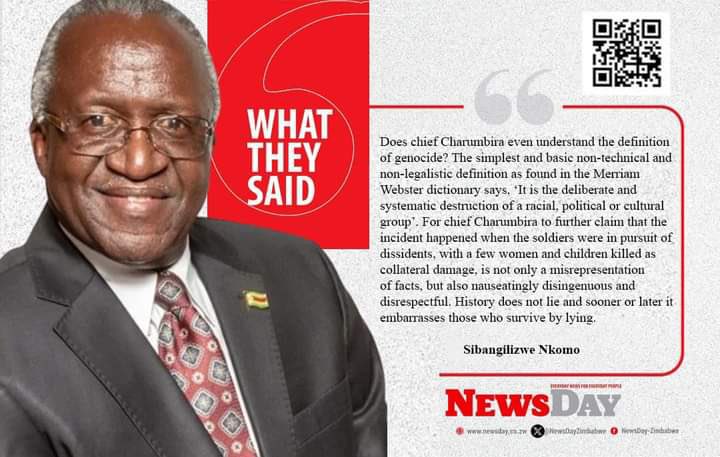
- Details
- Written by: Duke Maplanka and John Burke
- Category: Zimbabwe
- Hits: 1614
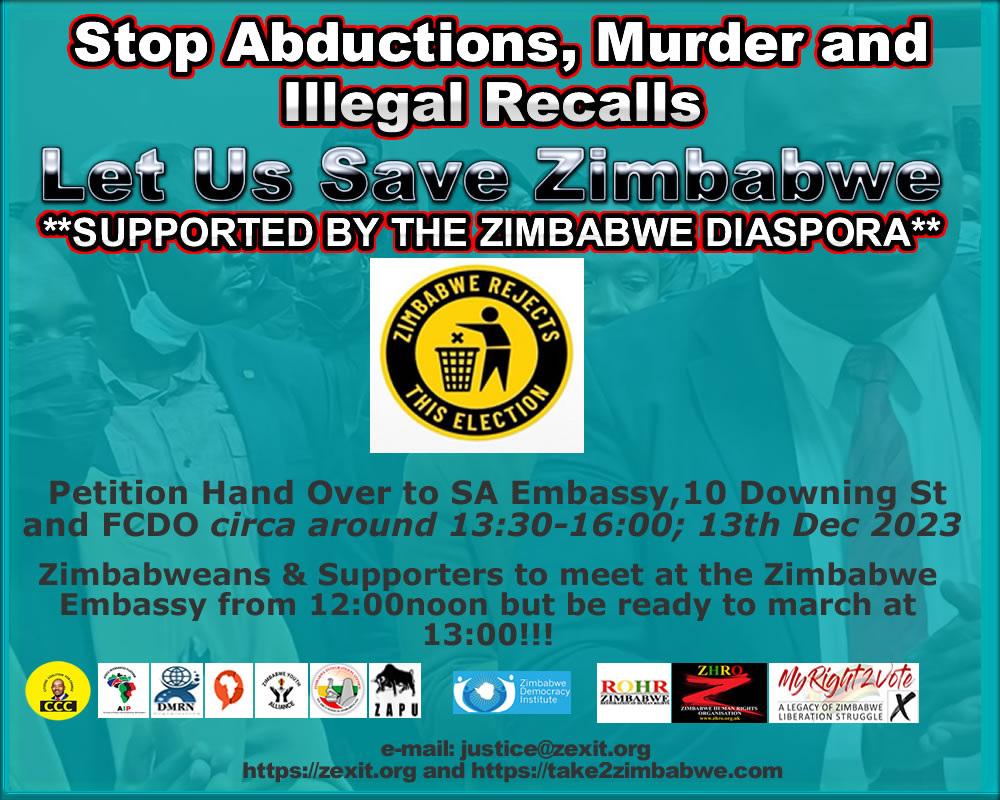 Geneva — Taken from a VOA article {duplicated as "News" by other media} which ignores all ZEC vote rigging, manipulation and mis-declarations. ZHRO and many others are Organising Protests. See Image.
Geneva — Taken from a VOA article {duplicated as "News" by other media} which ignores all ZEC vote rigging, manipulation and mis-declarations. ZHRO and many others are Organising Protests. See Image.
The United Nations called Friday for an independent investigation after an opposition activist in Zimbabwe was found dead following his abduction ahead of controversial by-elections {our italics - how about illegal due to fake recalls?}. The body of Tapfumanei Masaya, a pastor and an activist with the Citizens Coalition for Change (CCC), was discovered Monday, 30 kilometers (18 miles) outside Harare, the UN rights office said. He and fellow activist Jeffrey Kalosi had been snatched by armed men in broad daylight two days earlier while campaigning in the Zimbabwean capital for a CCC candidate.
"Both were reportedly tortured," UN rights office spokeswoman Liz Throssell said, adding that Kalosi had been released in the same area where Masaya's body turned up. See ZHRO Statement on the Tapfumanei Masaya Abduction, TORTURE and Murder
The killing follows a string of reported abductions, arrests and other violent acts that the CCC says {it is a campaign of intimidation that the evidence is showing} are part of a campaign of intimidation against its supporters following disputed general elections last August. Throssell noted that Zimbabwean authorities had said Masaya's killing was being investigated. {as unlikely as that is going to happen}
"We urge them to ensure there are thorough, prompt and independent investigations not only into his death but also into all allegations of people being tortured and kidnapped," she said.
"Perpetrators should be held accountable in fair trials that follow due process."
- Details
- Written by: John Burke
- Category: Zimbabwe
- Hits: 1143
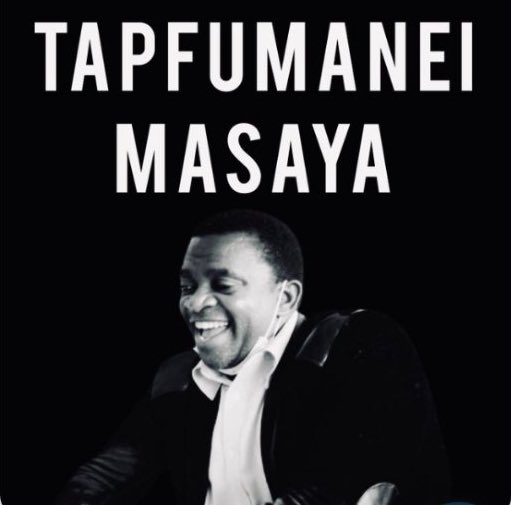 Our Change Champion, Bishop Tapfumaneyi Masaya, who was abducted in Mabvuku while campaigning, has been found dead. They recalled a legitimately elected MP of Mabvuku, Hon. Kufa. Today, this has cost an innocent life. He shall have justice. @Cde_Ostallos
Our Change Champion, Bishop Tapfumaneyi Masaya, who was abducted in Mabvuku while campaigning, has been found dead. They recalled a legitimately elected MP of Mabvuku, Hon. Kufa. Today, this has cost an innocent life. He shall have justice. @Cde_Ostallos
The dictatorship in Zimbabwe is nothing but an oppressive barbaric & murderous group of thugs. Bishop Tapfumaneyi Masaya who was abducted by ZanuPF agents on Nov 11 was today found dead. What government does this? How is anyone inspired by this callousness? Justice will be served for Masaya and others. We must never forget this💔💔💔RIP Bishop T. Masaya. @PastorEvanLive
The truly despicable Zanu PF thugs are beyond redemption. We have said this time & time again that Zanu PF are ruled by psychopaths - who need to be institutionalised in order to protect the electorate. This is NOT politics - this is MURDER @ZHRO_Zimbabwe
Deeply saddened by the tragic loss of CCC activist Tapfumanei Masaya. Our heartfelt condolences go out to his family and friends during this difficult time. May his dedication to change and the pursuit of justice be remembered. 🕊️ #RIPMasaya #RIPTapfumaneiMasaya. @SouthendCcc
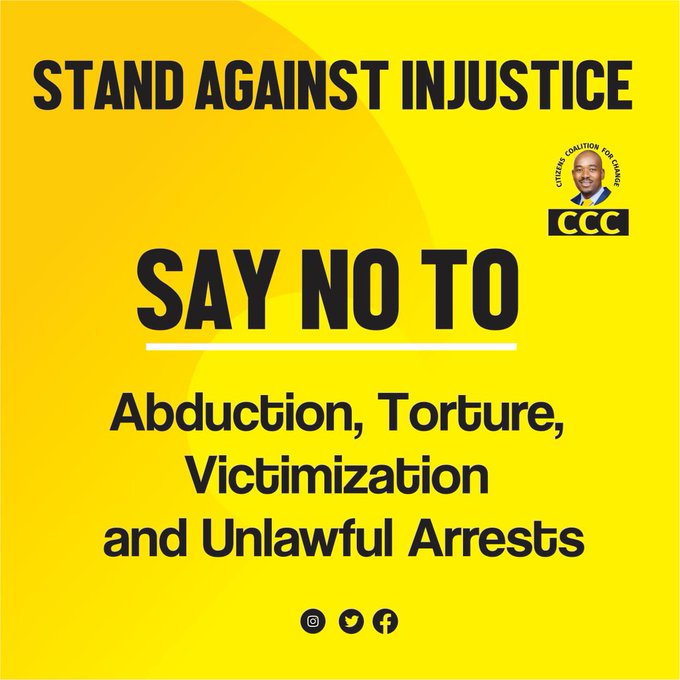
Amnesty International Zimbabwe @amnesty_zim
"We are deeply concerned by reports that Tapfumanei Masaya of Mabvuku, was abducted on Saturday, 11 November 2023." Time Stamp: 2:11 pm 13/11/2023
This was posted before the tragic news was released. But the message is clear - Zanu PF have no place in Zimbabwe, have no place in politics and have no place in Parliament - RESIGN NOW - all of you Zanu PF psychopaths!
BREAKING: Tapfumanei Masaya has been reportedly been killed. #JusticeForMasaya @ProtectHRDs
Rev Dr Kenneth Mtata
@kennethmtata
We should refuse getting used to the shedding blood of any Zimbabwean. This is not a partisan political issue. It is a matter of human dignity. It is against our culture. It is against our beliefs. It is against our laws.
No more shedding of blood. It's enough!!
Lord Jonny Oates
@jonny_oates
Devastating news that Pastor Tapfumanei Masaya has been murdered. My heart breaks for Zimbabwe. But I also know justice will come one day. As Archbishop Tutu always said of the fight against apartheid, ‘God’s mills may grind slowly but they grind very fine all the same’
Nhlanhlayamangwe Felix Ndiweni
@FelixNdiweni
Terrible, Terrible news. This is not good. What is even worse is that there will be no arrests and proper prosecution of the known Zanu PF members that have done this terrible deed.
See Press Statments on our Website from ZHRO, ROHR and ZAPU Also a Joint Statement dated 14th Nov 2023 from Amnesty International Zimbabwe, Human Rights Watch and Southern Defenders

